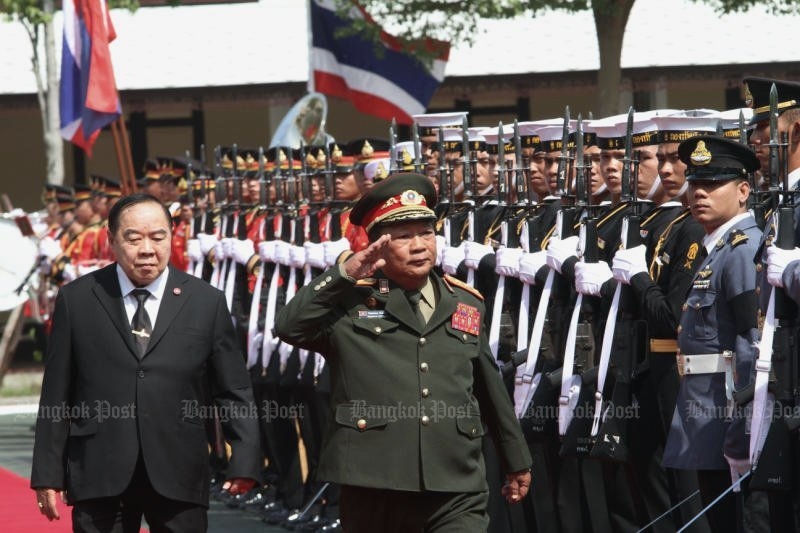
The military government wants neighbouring Laos to send back about half a dozen Thai citizens who have reportedly taken refuge there to escape being arrested for insulting the Thai monarchy, a crime punishable by up to 15 years in prison.
Gen Thawip Netniyom, head of the National Security Council, said Tuesday that the people being sought used social media to attack the monarchy.
He said the Defence Ministry has assigned him to seek a meeting with Laotian officials and work out a deal, which could include the exchange of people sought by each country.
Defence Minister Prawit Wongsuwon last week spoke with his Lao counterpart Lt Gen Chansamone Chayalath, who reportedly agreed to consider deporting the wanted Thai dissidents, according to the defence ministry spokesman.
The wanted persons are associated with the red shirt movement, which opposes the military government that seized power in 2014 and generally supports former Prime Minister Thaksin Shinawatra, who was deposed by a 2006 military coup. Anticipating a crackdown, a number of high-profile critics of the military fled Thailand in the aftermath of a 2014 military takeover.
- Related: 'Men in black' get 10 years
The army said after seizing power in 2014 that protecting the monarch would be a top priority, and has scoured the internet for lese majeste cases, pursuing many in military court. Critics charge that the law is being used to harass and punish the government's political opponents.
"Although Thailand and Laos do not have an official agreement to extradite suspects, we can proceed in terms of mutually beneficial cooperation. If Laos wants a criminal who violated the law in Laos and is hiding in Thailand, they may ask Thai officials to make an arrest and send that person back," Thawip said.
Thai news reports earlier said that Thailand had thanked Laotian authorities for shutting down an anti-monarchy radio station, but it was unclear if it referred to over-the-air broadcasting or internet radio. There are many websites and YouTube channels produced by opponents of Thailand's military regime.
Defence Ministry spokesman Kongcheep Tantravich said the people being sought "are causing divisiveness to another country. They are smearing the government and smearing the institution, which is dangerous." The monarchy is often described with respect as "the institution."
The Associated Press reported that Maj Gen Kongcheep said, "They are not suspects, they are dangerous people."
"This is more of an exchange of prisoners between one country and another," he said. "They have some and we have some. We are exchanging information and we will see what we get out of it."
Laos, a single-party state governed by a communist party, tolerates no political dissent.